Corsair Force MP600 NVMe PCIe Gen4 x4 M.2 SSD 1TB Specifications
Here are the key specs for the Force MP600 1TB:
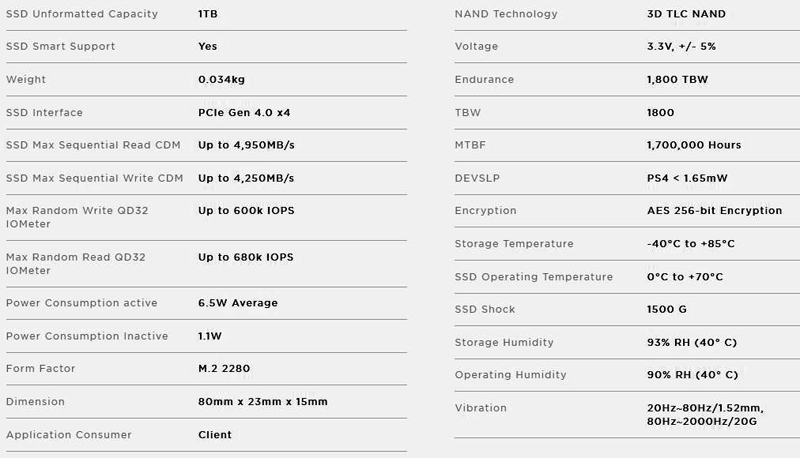
This drive actually has a solid endurance rating at 1.8PB. For a consumer drive, that is absolutely plenty. The MTBF is lower than the 2M hour feature that we see on many higher-end drives. Still, for a read optimized device, the ability to do 680K 4K random read IOPs and almost 5GB/s sequential reads is well beyond what we see on PCIe Gen3 NVMe drives.
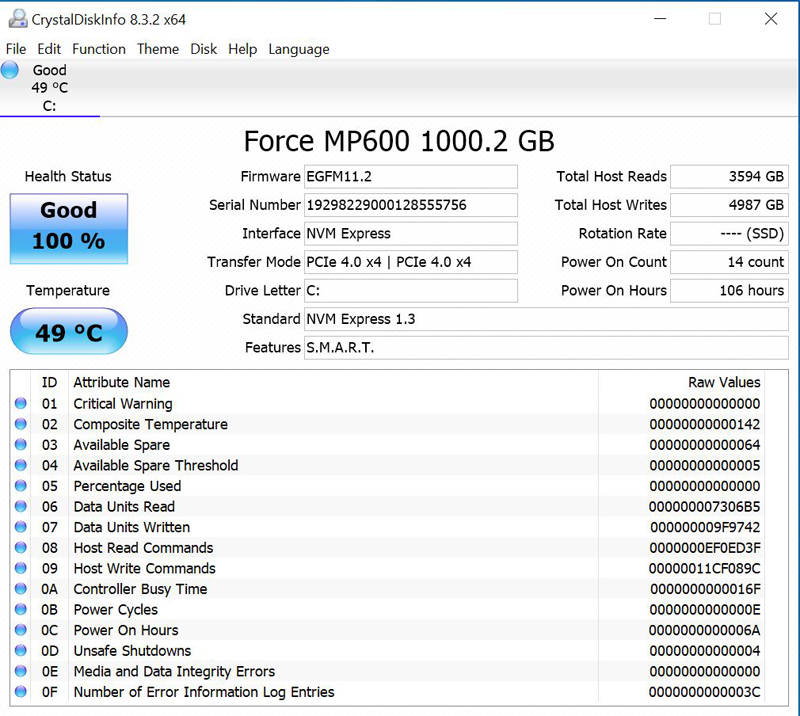
CrystalDiskInfo shows us the basic information about our Corsair Force MP600 NVMe PCIe Gen4 x4 M.2 SSD 1TB.
Test System Configuration
We have completely overhauled our test platform and will now use the following for all our testing needs.
• Motherboard: ASUS ROG Zenith II Extreme Motherboard
• CPU: AMD Threadripper 3960X (24 cores / 48 Threads)
• GPU: NVIDIA RTX 2080 SUPER
• Cooling: NZXT Kraken X62
• RAM: 4x Corsair Dominator Platinum RGB 3600 MHz 16GB (64GB Total)
• SSD: Corsair Force MP600 NVMe PCIe Gen4 x4 M.2 SSD
• PSU: EVGA Supernova 1600 T2
• OS: Windows 10 Pro
Our testing used the Corsair Force MP600 NVMe PCIe Gen4 x4 M.2 SSD 1TB as the OS Boot drive, and after installing our applications. We filled the drive to 50% using a large mixture of large and small files. We also add into the graphs an Intel Optane 900P 480GB PCIe Gen3 SSD for comparisons.
Let us move on with our performance testing.

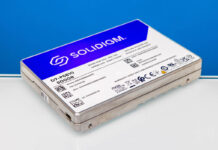
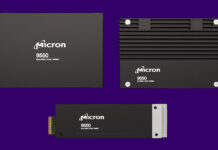
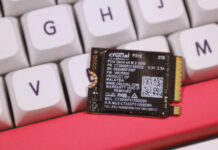
William, thanks for the review and also Merry Christmas.
However, looking at the results it occurs to me that what you (& other ssd/hdd testers) are actually measuring is the performance of the software tools. Example AS SSD tools says ~2000MB/s sequential read, and same page, Anvil Storage Utilities says ~4000MB/s sequential read.
Surely there is an objective reality underlying the test results, and that reality is located in the SSD. So we have a problem with the software I’d say.
Cheers!
Great review. Thank you for the early insight in to the new generation.
Given that sheer amount of speed and potentially in flight data, it would be helpful to understand the impact of power loss on these newer drives.
Here there are no hold up capacitors, but perhaps there are some firmware mitigations to ensure consistency. Or maybe not?
Perhaps an opportunity to combine with some updated ZFS testing.
emerth: Look at the SPEC benchmark results instead if you don’t like (understandably so) the pure synthetic benches.
The most relevent for desktop performance numbers from the synthetic tests to me are the ones that show the random read/write numbers for low (QD4 or less) queue depths.
I discovered this website while looking for that SSD review.
I’m bluffed by the quality and the accessibility of that review, I’m not an export but I got the main points and from what I’ve seen even for expert this is very complete.
Cheers. I’ll be checking more of your website. Indeed, I expect good given this review.